Disasterama: all the times Roland Emmerich destroyed the world
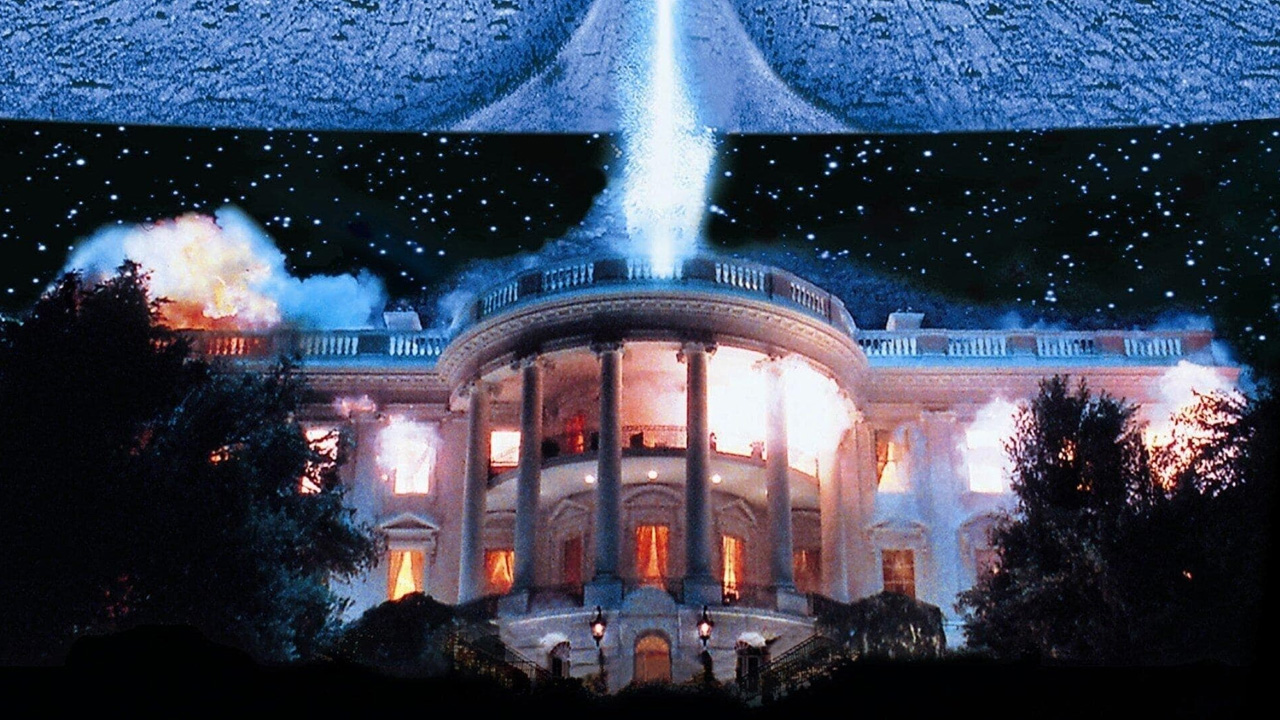
Latest end-of-the-world blockbuster Moonfall sees director Roland Emmerich doing what he loves to do most on-screen: making our planet dead. Tony Stamp combs through Emmerich’s filmography and counts off all his movies involving the destruction of Earth (it’s a lot).
The career of German director Roland Emmerich is one seemingly full of contradictions. He’s open about his progressive politics, and donations to charitable causes, but his movies tend to land nearer the moral ballpark of Michael Bay than his hero Steven Spielberg. He’s openly gay but treats his queer characters as punchlines. Outspoken about racism but whitewashes Black people from his recreation of historical events. And for someone concerned with the preservation of the Earth, seems to love seeing massive parts of it destroyed in gleeful, near-pornographic detail, over and over again.
Honestly I was shocked to learn about his political leanings, what with his movies being such totems of Hollywood excess; bloated popcorn fare of the dumbest variety (albeit often very entertaining, as we’ll see). But things fell somewhat into place when I learned how he chooses to decorate his houses, as per Wikipedia: with portraits of dictators, a Princess Diana lookalike engaged in sex acts, World War II military gear, and so on. He’s said the art doesn’t reflect his beliefs, he just likes things with a political edge.
There’s a blunt—dare I say, German?—feel to this approach. And it made me wonder, has he been trying to make a point about our destruction of the earth this whole time? And we all missed it because he keeps making Armageddon look like a damn theme park ride? Nearly half of Emmerich’s filmography concerns globally catastrophic events, and I’d always assumed that’s because he struck gold with Independence Day and just kept riding that gravy train. But it turns out he’s had this… let’s say, fetish… since his very first film. His thesis film no less.
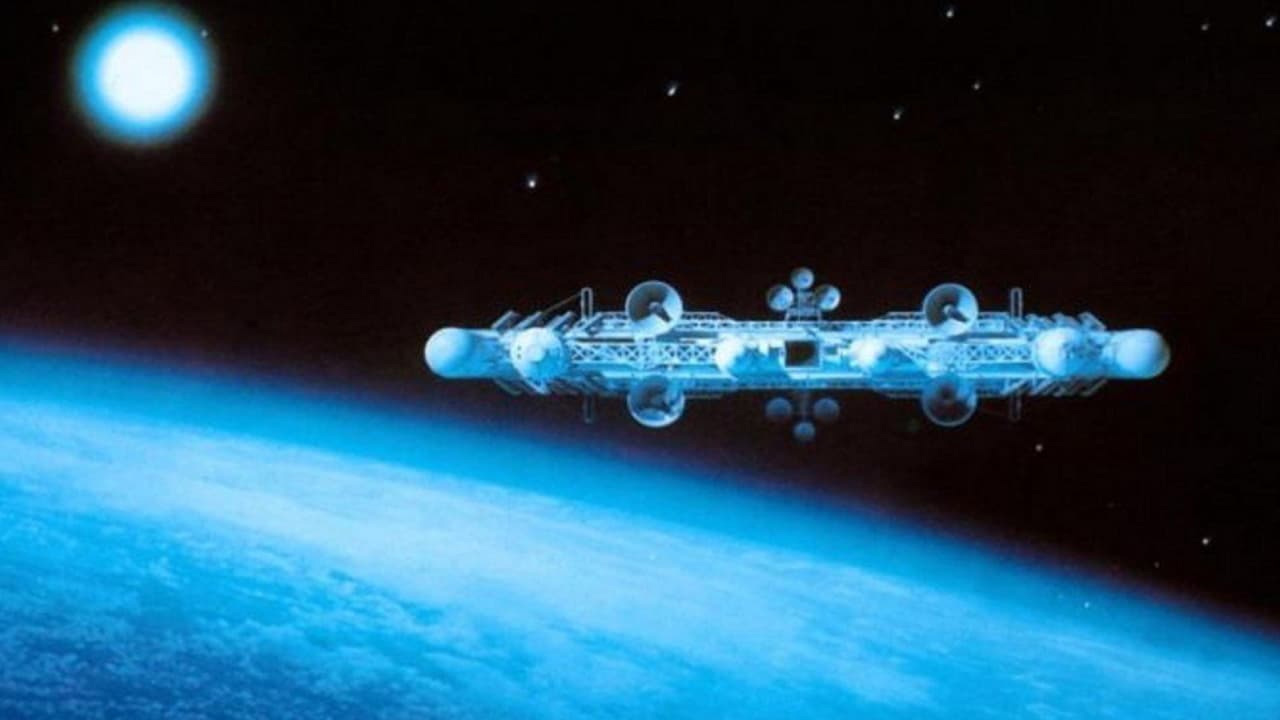
The Noah’s Ark Principle
Right out of the gate, Emmerich was concerned with the fate of the world, and for his graduation film for the University of Television and Film Munich, it involved a European/American space station with the potential to dole out devastating natural disasters. Made in 1984 and set in the far-flung future of 1997, Emmerich raised US$600,000 for the project— around thirty times more than the average student.
It features a snazzy score and the impressive effects work that would become his stock-in-trade, but is still clearly a student film and ultimately, pretty dull.
He followed it up with Making Contact, a Poltergeist knock-off involving a haunted phone, demons and telekinesis, and then his first American (co)production Ghost Chase, similarly concerned with spooks and so on. Then it was back to the end of the world.
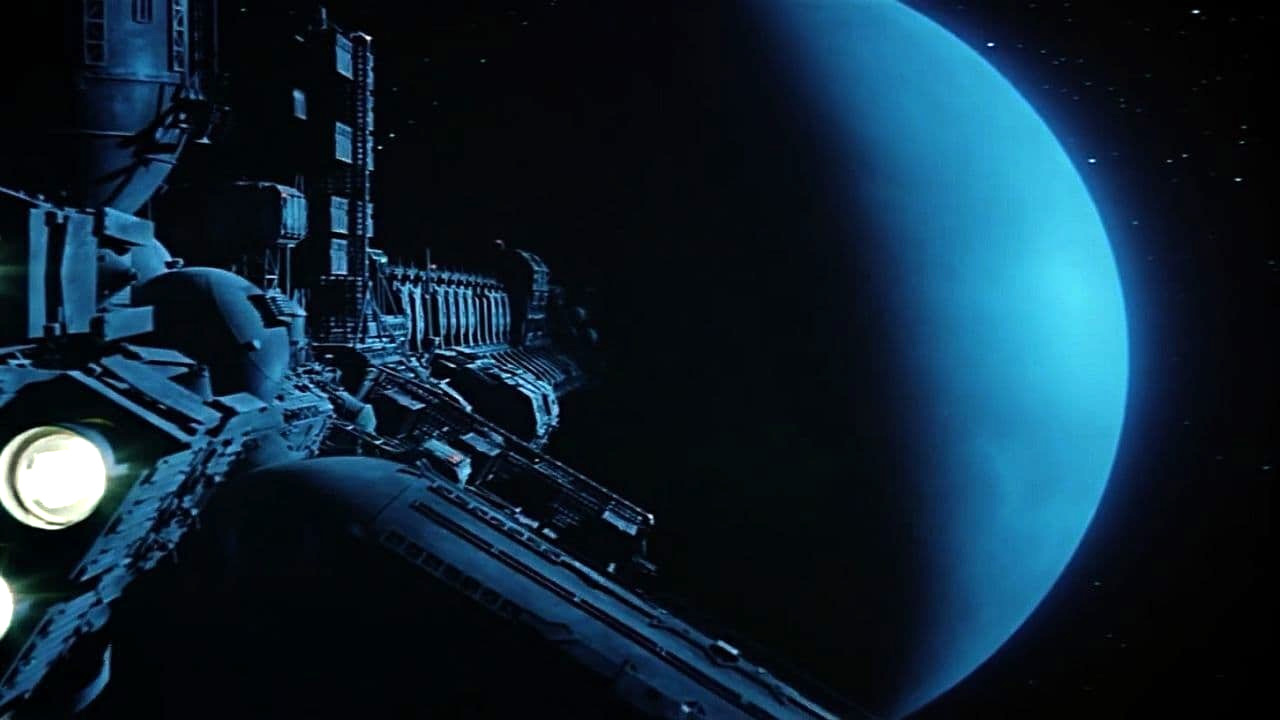
Moon 44
A German production with an English-speaking class including Michael Paré and a highly suspicious Malcolm MacDowell, this one takes place in a future that’s post-apocalyptic in the sense that Earth has been depleted of all resources, and multinational corporations are battling for control of the galaxy’s mining planets. The director’s politics were clearly more on his sleeve here, and there are echoes in that plot of what Bezos, Musk et al are planning today, so kudos for the foresight.
Interestingly, Moon 44 co-stars Dean Devlin, who would go on to produce Emmerich’s biggest hits. Other than that it’s a bit of a snooze.
Two years later he made his first big Hollywood hit Universal Soldier, a still-solid actioner that paired Jean-Claude Van Damme and Dolph Lundgren (and was co-written by Devlin), and then Stargate, likewise still pretty enjoyable, lauded for its effects (co-written and produced by Devlin) and the starting point for a long-running TV franchise. And then came the big one.
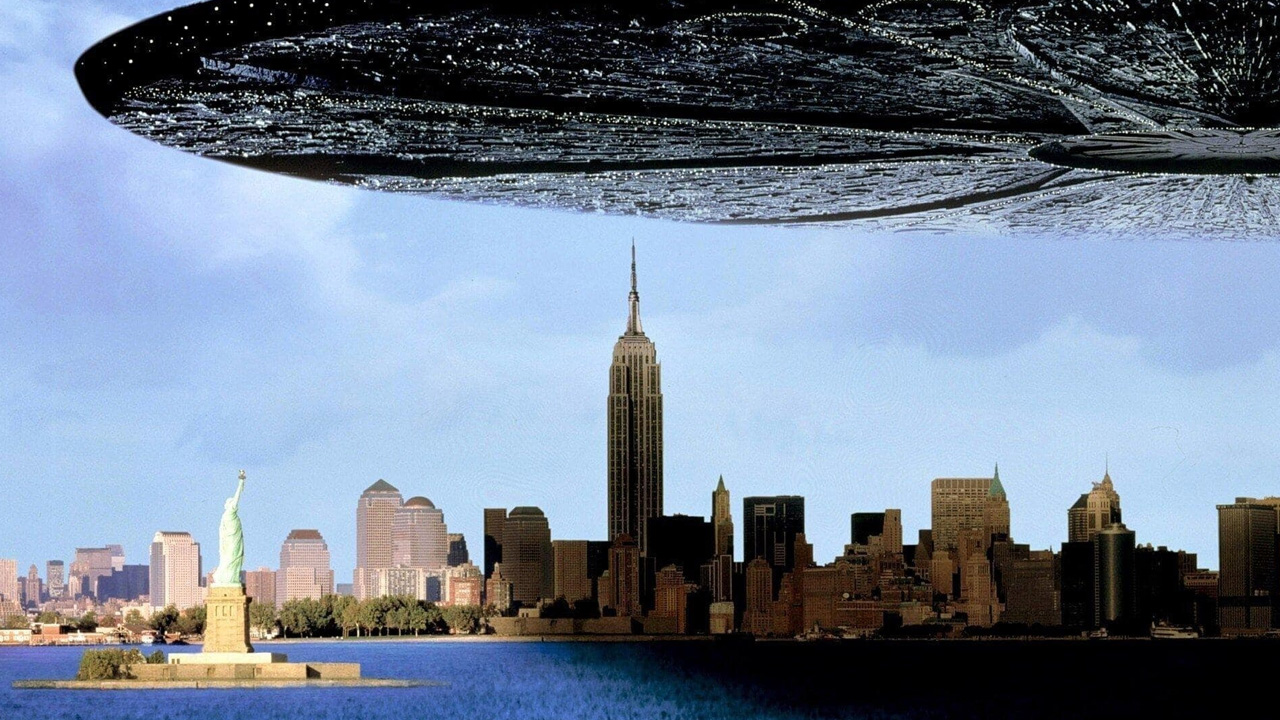
Independence Day
Will Smith punched an alien in the face, The White House was demolished by an alien laser, and Emmerich and Devlin established themselves as masters of big screen carnage. ID4 made over $817.4 million worldwide and became the second highest-grossing movie of all time, behind Jurassic Park.
Its success was so great it kickstarted a full-on disaster and sci-fi movie resurgence, as those alarming images of monuments getting blown up proved to be catnip for viewers. It holds up as an entertaining blockbuster with still-impressive effects, but its secret weapon was the format, jumping between an ensemble cast at various points around America.
Emmerich had never been so bankable, and he immediately cranked out a flop.
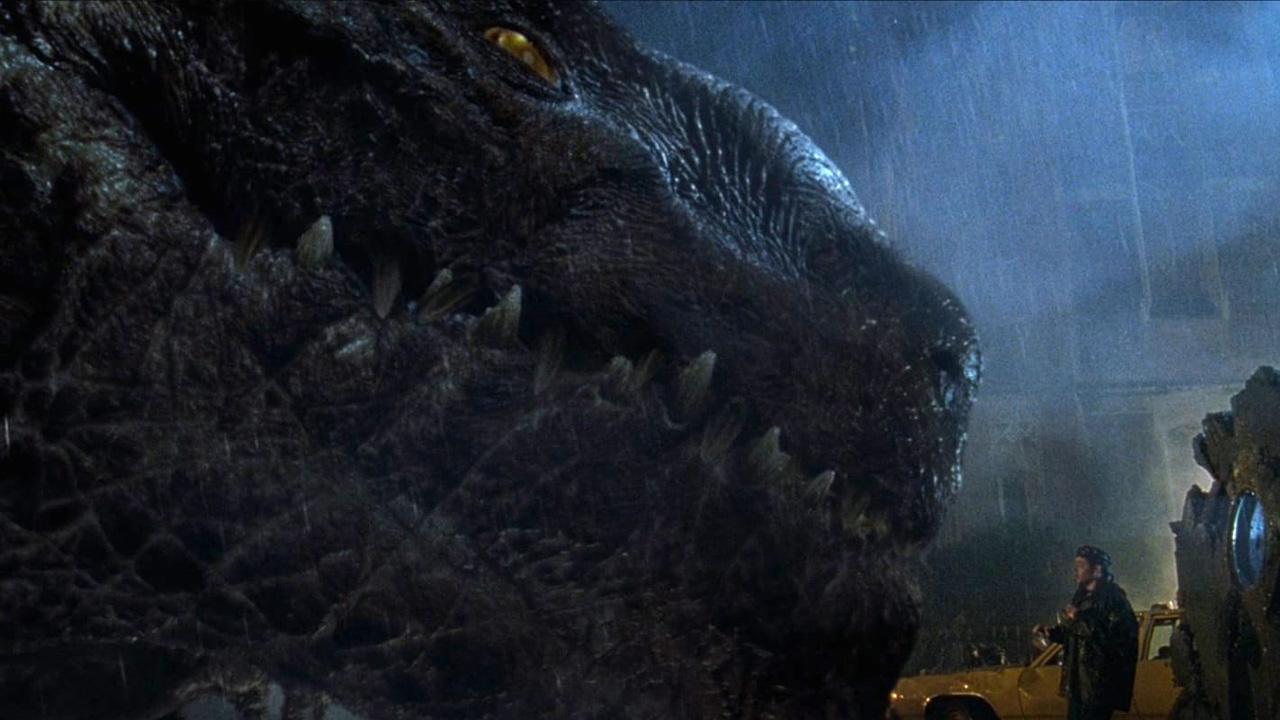
Godzilla
The first Hollywood-funded movie about the giant lizard tanked critically and commercially, as audiences agreed the great effects work didn’t excuse the shoddy plotting and pseudo-comic tone. Plus, nobody wants to see mini-Godzillas in your Godzilla movie! Stick to the full-size version please.
Emmerich marshalled a stellar cast for his next Revolutionary-War-set film The Patriot, and after that didn’t do too well either, went back to the disaster-porn well.
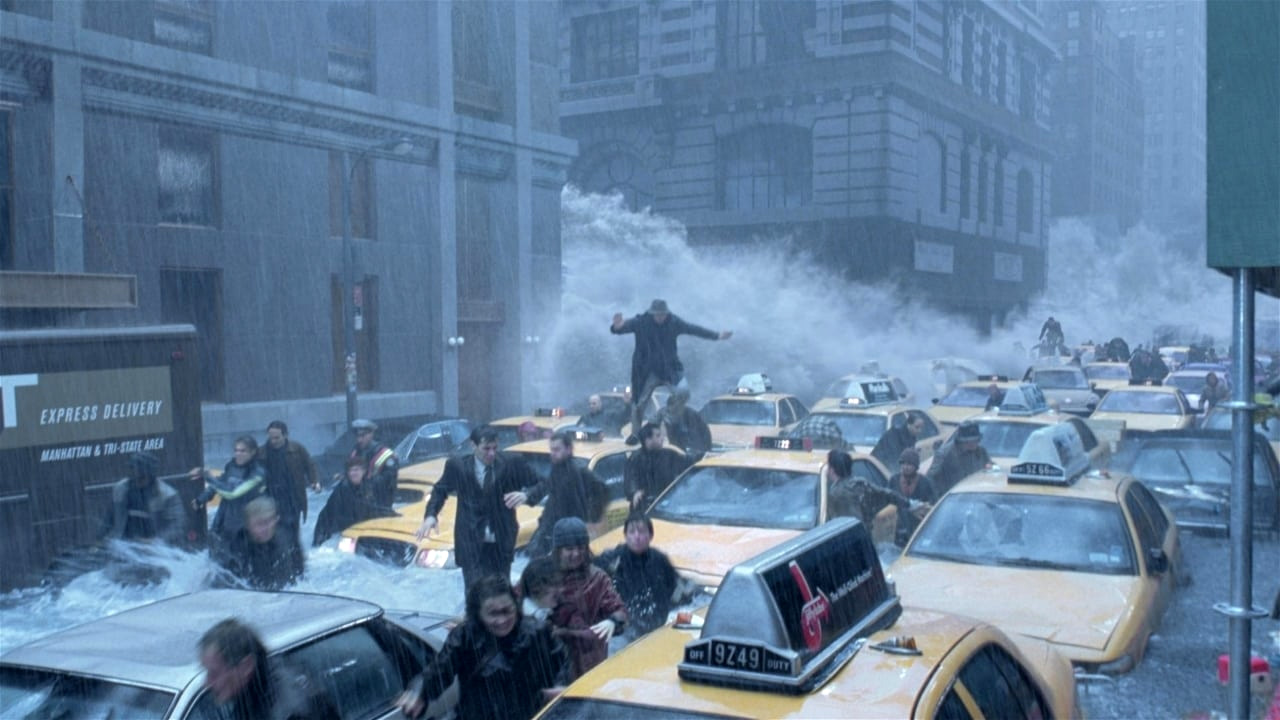
The Day After Tomorrow
This one specifically addresses the director’s concerns about climate change, but in true Emmerich fashion, is riddled with scientific inaccuracies in favour of popcorn thrills. Which is fine. Once again the cast is stacked, and employs ID4’s approach of jumping between locations.
As always the effects were praised, but reception was otherwise mixed. It did draw praise from a number of environmental groups however.
Emmerich delivered a curveball next, following a group of mammoth hunters in the prehistoric era with 10,000 BC. And then he destroyed the world again.

2012
By this point it’s hard not to imagine our German schlock auteur cackling as he smashes up landmarks of human civilisation like a kid flattening his toys, but those box office rewards kept coming.
This one doubles down on the already-absurd world-ending shenanigans, as our heroes survive cataclysmic events by sheer luck while millions perish around them. Ancient prophecies and all sorts of nonsense get thrown into the mix, until eventually we follow a series of arks set up to save the Important People—much like the Ben Elton novel Stark and the recent movie Greenland.
Following this was the weird conspiracy thriller Anonymous, which posited that Shakespeare didn’t write his plays, then White House Down, a comparatively tight, focused thriller that features Jamie Foxx as the President of the US firing a rocket launcher at some bad guys. It might just be Emmerich’s best movie.
After that came Stonewall, which caught flack for erasing people of colour and trans folks from the riots that kicked off the gay liberation movement in New York. Time to go back to the big one.
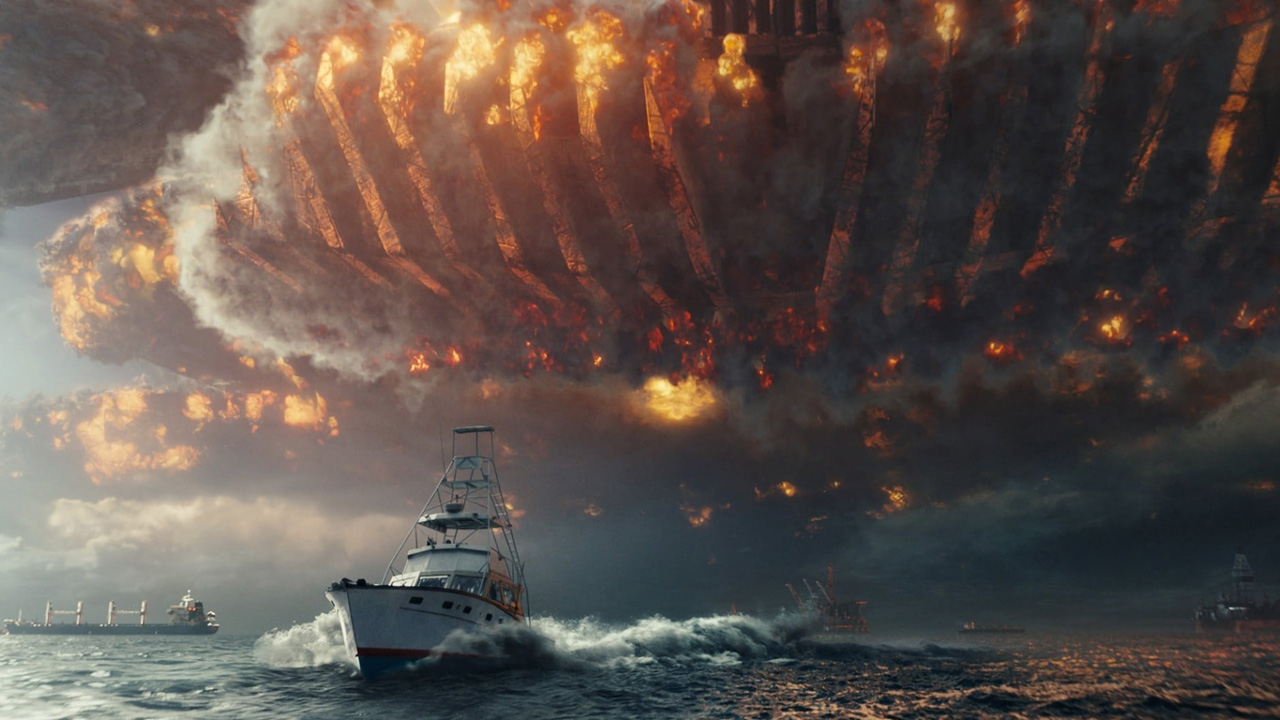
Independence Day: Resurgence
Borrowing liberally from Aliens 30 years after the fact, this triples down on Emmerich’s size fetish to the extent that the invading spaceships are the size of continents, playing havoc with Earth’s gravity. This is big-budget gonzo mayhem of the highest order: Las Vegas, London, Singapore, Dubai and Malaysia are gleefully wiped off the map, in scenes clearly designed to be funny. Jeff Goldblum cracks wise as billions of lives are snuffed out. The movie is PG-13. It’s truly wild.
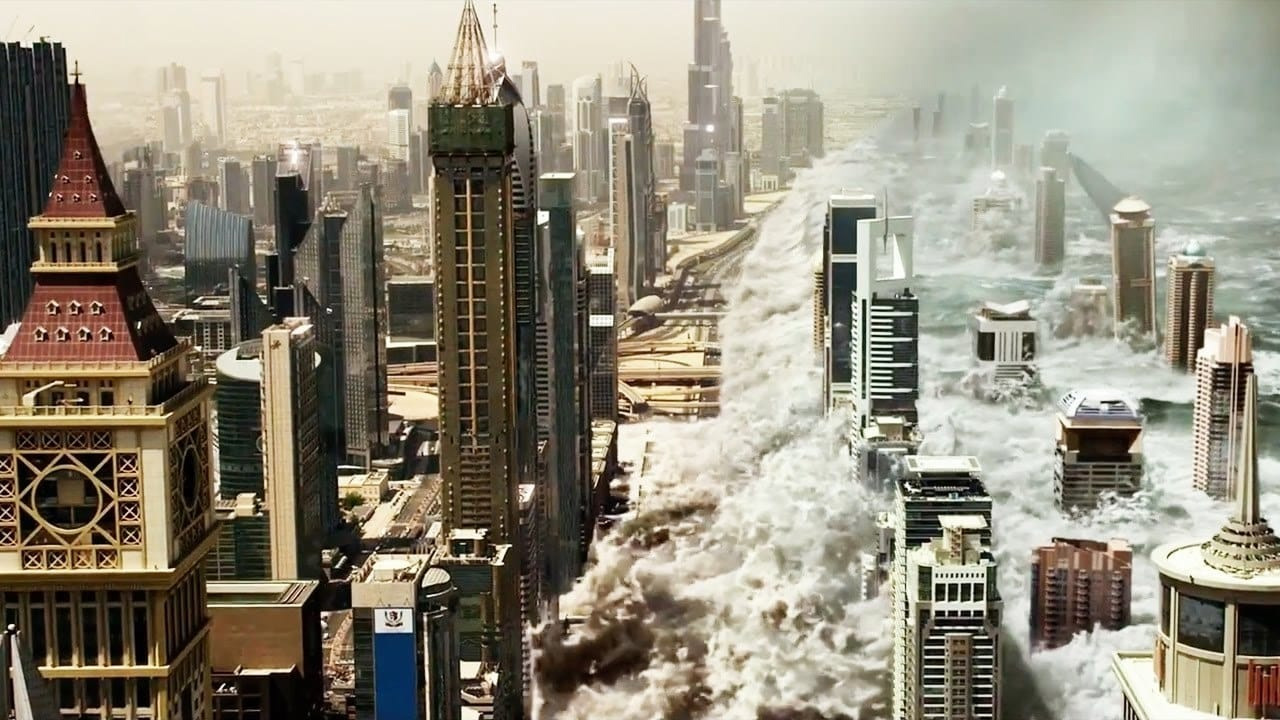
Sidebar: Geostorm
Mention should be made that at this point Emmerich’s producing and writing partner Dean Devlin directed his first film. It was about weather-controlling satellites that are in danger of—yup—destroying the world.
After this came WWll drama Midway, which I’m sure was handled sensitively, and now humanity faces its biggest challenge yet: the moon.
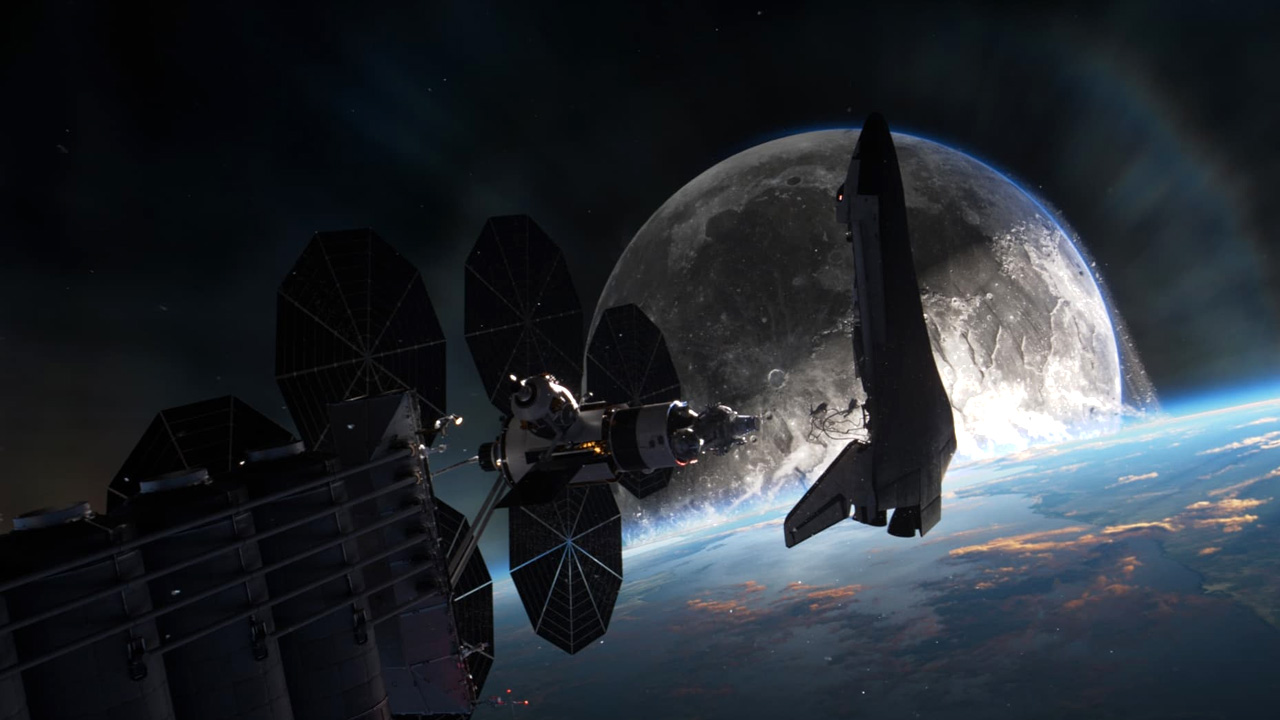
Moonfall
In which “The Moon is knocked from its orbit by an unknown force and put onto a collision course with Earth. Two astronauts and a conspiracy theorist work together to attempt to avert disaster and discover that the moon is not what it seems”.
The moon is not what it seems.
As obscene as I find a lot of this in theory (not least because it’s another Hollywood movie that seems to think conspiracy theorists are heroes), the trailer had me chuckling. Any sense of objective reality is out the window—everything is blowing up, or defying gravity, in service of this German director’s perverse desire to keep destroying planet Earth on film, and making it as entertaining as possible. I will be there, watching thousands of years of human endeavour snuffed out in various tasteless ways. And despite myself, I’ll probably enjoy it.






















